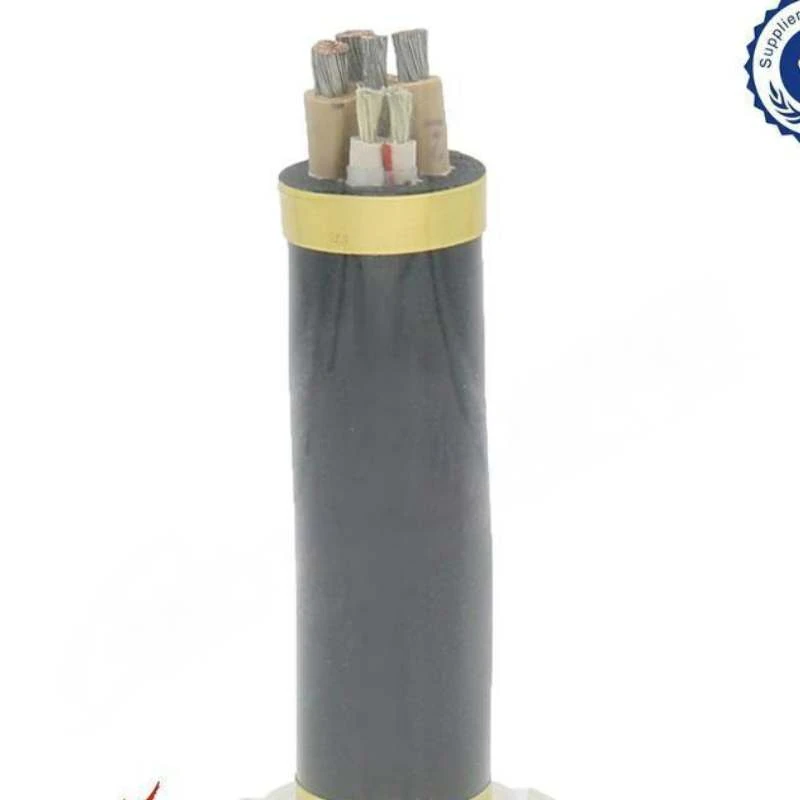Dec . 15, 2024 17:23 Back to list
knife gate valve
Understanding Knife Gate Valves Applications and Benefits
Knife gate valves are specialized valves commonly used in various industrial applications, particularly within systems that handle slurries, powders, and liquids with suspended solids. These valves are designed to isolate or control the flow of fluids, making them integral components in sectors ranging from water treatment to mining.
Design and Structure
The knife gate valve's distinctive feature is its blade-like gate, which can cut through thick fluids and particulates. Typically constructed from durable materials such as stainless steel, cast iron, or other corrosion-resistant alloys, these valves are engineered to withstand harsh operating conditions. The design includes a flat gate that moves vertically, allowing for a quick open and close action. This feature not only helps minimize downtime but also ensures effective sealing and leak prevention when closed.
Applications
1. Mining and Metallurgy In the mining industry, knife gate valves play a crucial role in handling slurries and thick materials that contain a large amount of solid particulates. They are ideal for controlling the flow of tailings and mineral slurry in processes such as ore processing and waste management.
2. Water and Wastewater Treatment Knife gate valves are widely used in water treatment facilities to manage the flow of wastewater. Their ability to handle solids and viscous fluids makes them well-suited for applications like sludge management, where traditional valves might struggle.
3. Pulp and Paper Industry In the pulp and paper sector, these valves help regulate the flow of pulping and papermaking processes, effectively managing fiber slurries and ensuring smooth operation.
4. Chemical Processing Given their robustness, knife gate valves are often utilized in chemical processing facilities to control the flow of corrosive and viscous materials. Their ability to provide a tight seal prevents leaks and contamination, which is critical in this industry.
Advantages
knife gate valve

Knife gate valves offer several advantages over traditional valves
. Some of these include- Efficient Operation The quick opening and closing feature of knife gate valves allows for efficient control of flow, minimizing the time needed for operation.
- Minimal Flow Resistance Unlike other types of valves, knife gate valves have a linear flow path, which reduces the turbulence and pressure drop across the valve. This is especially beneficial in systems requiring high flow rates.
- Durability The robust design and choice of materials ensure that knife gate valves can withstand the harsh conditions often found in industrial processes. This durability translates to longer service life and reduced maintenance costs.
- Versatility Knife gate valves can be designed in various sizes and configurations, making them adaptable to different systems and applications. This versatility allows them to be integrated easily into existing infrastructure.
Challenges and Considerations
Despite their numerous benefits, there are certain challenges associated with knife gate valves. For instance, they may not be suitable for certain applications involving highly viscous materials or where precise flow control is required. Additionally, users must ensure proper maintenance to avoid wear on the gate and seals, which could lead to leaks or operational failures.
Furthermore, while knife gate valves are excellent for on-off control, they may not provide the same level of precision for throttling applications as other valve types such as globe valves. Therefore, it is essential to evaluate the specific requirements of the application when selecting a valve type.
Conclusion
In summary, knife gate valves are vital components in various industries where solid-laden fluids need to be controlled effectively. Their unique design, coupled with a range of applications, positions them as an essential choice in sectors such as mining, wastewater treatment, and chemical processing. While they offer numerous advantages, organizations should consider the specific requirements of their applications and ensure proper maintenance to fully leverage the benefits these valves provide. As industries continue to evolve, the adaptability and efficiency of knife gate valves will remain a significant factor in fluid control technology.
Share
-
Reliable Wafer Type Butterfly Valves for Every IndustryNewsJul.25,2025
-
Reliable Flow Control Begins with the Right Ball Check ValveNewsJul.25,2025
-
Precision Flow Control Starts with Quality ValvesNewsJul.25,2025
-
Industrial Flow Control ReliabilityNewsJul.25,2025
-
Engineered for Efficiency Gate Valves That Power Industrial PerformanceNewsJul.25,2025
-
Empowering Infrastructure Through Quality ManufacturingNewsJul.25,2025


